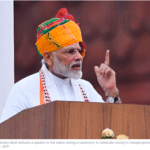In a groundbreaking move to bolster Pakistan’s thriving IT sector and empower freelancers, Caretaker Federal Minister for Information Technology and Telecommunications, Dr. Umar Saif, has announced a visionary plan. The government is set to offer interest-free loans to establish 5,000 E-Working Centers, providing freelancers with the ideal workspace they need to excel. Each freelancer will receive financial assistance of Rs100,000, with the possibility of contributing additional funds as required.
This transformative initiative addresses a critical challenge faced by the nation’s 1.5 million freelancers, who often struggle to find suitable work environments. Dr. Saif highlights the potential economic impact, estimating that each freelancer could contribute significantly to the national economy, potentially earning between $25,000 to $30,000 annually. This move is expected to drive IT sector exports, potentially increasing them by a remarkable $3 billion.
Moreover, the government is actively working to facilitate access to loans and investments for IT startups, with ambitious plans to attract external investments amounting to $1 billion within the next six months.
Dr. Saif’s visionary approach also takes into account the skill gap within the IT workforce. Despite universities producing 20,000 to 22,000 IT graduates, only a fraction secure employment—around 2,000 to 2,200 of them. To tackle this issue, the minister proposes the implementation of international-standard IT training for all university students nationwide. This bold move could potentially expand the IT sector’s skilled workforce by over 200,000 individuals and boost IT exports to an impressive $5 billion.
Furthermore, Dr. Saif is exploring incentives for IT companies that repatriate funds from abroad, potentially infusing an additional $1 to $2 billion into the country’s economy.
In a strategic endeavor to leverage Pakistan’s position as the seventh-largest mobile phone market with 190 million users, Dr. Saif unveils the government’s vision to promote local manufacturing of affordable, high-quality mobile phones. This ambitious initiative aims to reduce the country’s reliance on imported phones, conserve foreign exchange, and create job opportunities in the high-tech industry.
As part of the plan to enhance mobile services, Dr. Saif also outlines a National Roaming Policy, allowing telecom companies to share towers, ensuring better connectivity for consumers.
To further strengthen IT expertise, the National Vocational & Technical Training Commission (NAVTTC) is set to provide training to approximately 100,000 IT professionals.
These strategic initiatives under Dr. Umar Saif’s leadership reflect a forward-thinking approach to harness the full potential of Pakistan’s IT sector. As the government empowers freelancers, supports startups, and bridges the IT skills gap, it sets the stage for robust economic growth and technological advancement.














